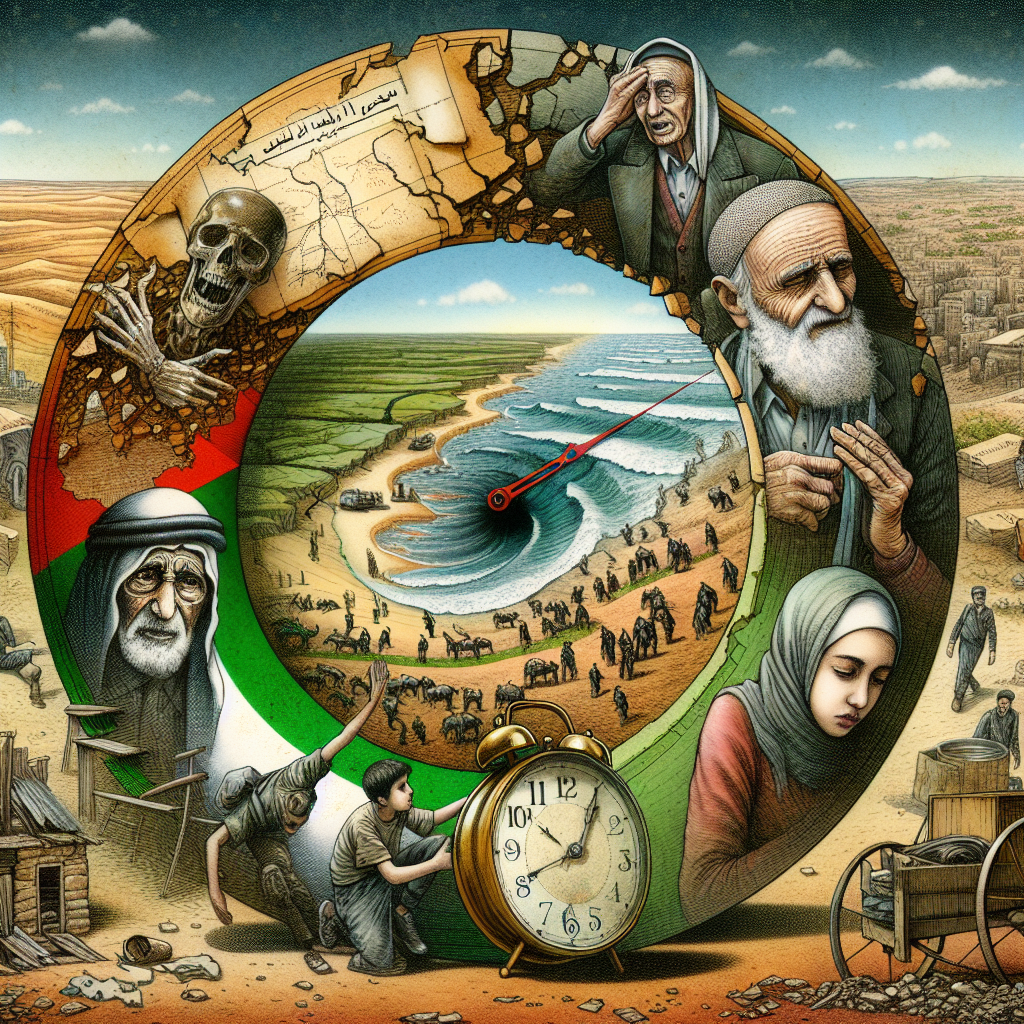Remembering Nakba: A Cycle of Repetition
Remembering Nakba: A Cycle of Repetition
Introduction to Nakba
The term “Nakba,” meaning “catastrophe” in Arabic, refers to the mass displacement of Palestinians during the 1948 Arab-Israeli conflict. This pivotal event has left a lasting impact on the Palestinian people and continues to shape the geopolitical landscape of the Middle East.
Historical Context
The Nakba occurred in the wake of the establishment of the state of Israel, leading to the displacement of approximately 700,000 Palestinians. This event is marked by:
- Mass exodus of Palestinian families from their homes.
- Destruction of numerous Palestinian villages.
- Enduring refugee crisis affecting millions of Palestinians.
Cycle of Repetition
The Nakba is not just a historical event but a recurring theme in the ongoing Israeli-Palestinian conflict. The cycle of repetition is evident in:
- Continued displacement and resettlement issues.
- Ongoing tensions and violence in the region.
- Persistent calls for the right of return for Palestinian refugees.
Impact on Palestinian Identity
The Nakba has become a cornerstone of Palestinian identity, influencing cultural, social, and political narratives. Key impacts include:
- Strengthening of Palestinian nationalism and unity.
- Influence on art, literature, and collective memory.
- Continued advocacy for Palestinian rights on the global stage.
Global Perspectives
The international community remains divided on the issue, with varying perspectives on the Nakba and its implications. Key points include:
- Support for Palestinian statehood and rights from various countries and organizations.
- Ongoing debates over historical narratives and accountability.
- Efforts to mediate peace and resolve the conflict.
Conclusion
The Nakba is a profound event that continues to resonate with Palestinians and the broader Middle East. Its legacy is a cycle of repetition that underscores the need for a lasting resolution to the Israeli-Palestinian conflict. Understanding the Nakba is crucial for comprehending the complexities of the region and the enduring quest for peace and justice.






































